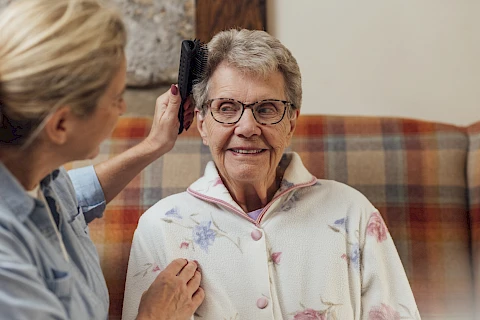
Living with Parkinson's disease, whether as a patient or a caregiver, presents unique challenges. Parkinson's is a progressive neurological disorder that affects movement and can affect daily activities and emotional well-being. For caregivers, knowing how Parkinson's progresses over time is crucial to providing effective and compassionate care. Being prepared for the changes that come with each stage allows you to better support your loved one throughout their journey.
Early Stages of Parkinson's
In the early stages of Parkinson's disease, symptoms can be mild and may not significantly disrupt daily life. Initial signs often include tremors, slight stiffness, and changes in handwriting. Slowness in movement (bradykinesia) can also emerge.
Caregivers can help manage these early symptoms by:
- Encouraging regular exercise to maintain flexibility and balance. Always check with a doctor before starting a new exercise routine or activity.
- Creating a stress-free environment to help mitigate symptom flare-ups.
- Promoting healthy eating habits to support overall well-being.
During these early stages, seeking medical advice is essential. Early diagnosis and intervention can help manage symptoms more effectively. Medical professionals might recommend medication or physical therapy to address these initial challenges.
Mid-Stages of Parkinson's
As Parkinson's disease progresses into mid-stages, symptoms typically escalate, requiring increased care. Balance and coordination issues can become more pronounced, potentially leading to falls. Other symptoms, such as sleep disturbances and speech changes, may also arise.
Caregivers should focus on adapting to the changing needs during this stage. Ensuring a safe home environment is critical, which includes removing tripping hazards and installing grab bars where necessary. Assisting with daily activities like dressing and bathing becomes more crucial. Encouraging participation in speech and physical therapy can help manage symptoms effectively.
Medical professionals' input becomes even more vital during this stage. Regular consultations can ensure medications are adjusted to manage symptoms effectively. Occupational and speech therapies can be beneficial in addressing specific challenges.
Advanced Stages of Parkinson's
In advanced stages, seniors with Parkinson's may experience severe symptoms that significantly alter their lifestyle. They might require round-the-clock care as mobility becomes severely restricted. Cognitive symptoms, such as dementia, may develop.
At this stage, caregivers need to focus on providing comprehensive care. This care involves collaborating with healthcare professionals to develop a detailed care plan, exploring mobility aids and adaptive equipment to support daily activities, and providing emotional and psychological support to help manage frustration and stress.
Remember, caregivers need care, too. Providing continuous support can be emotionally taxing, so take regular breaks, seek help from support groups, and consider respite care options.
The Role of Ongoing Medical Care and Support
Ongoing medical care is essential throughout all stages of Parkinson's disease. Regular medical check-ups allow for adjustments in treatment plans to manage the evolving symptoms effectively. Caregivers advocate for their loved ones, ensuring they receive the necessary treatments and therapies.
Stay informed about new research and available treatments. Being proactive and involved in medical appointments can ensure the best possible care for your loved one. Don't hesitate to ask questions and express concerns to healthcare professionals.
Need Support Caring for a Loved One With Parkinson's?
Understanding how Parkinson's progresses allows caregivers to adapt their care strategies as needs evolve. Being prepared and informed helps make the journey more manageable and less overwhelming.
If you're in Redmond, Sisters, Madras, Prineville, or Powell Butte, contact us at Senior Helpers Bend. Our specialized Parkinson's care services can support your loved one while providing you with the guidance and assistance you need.